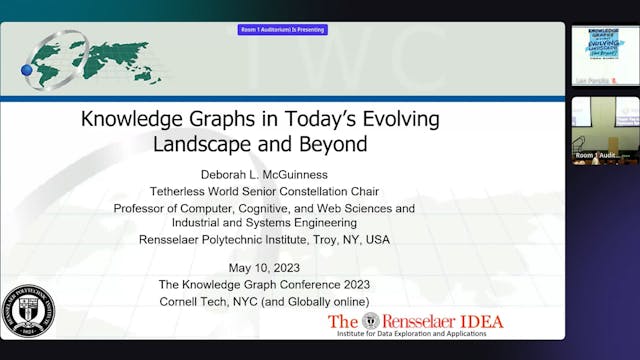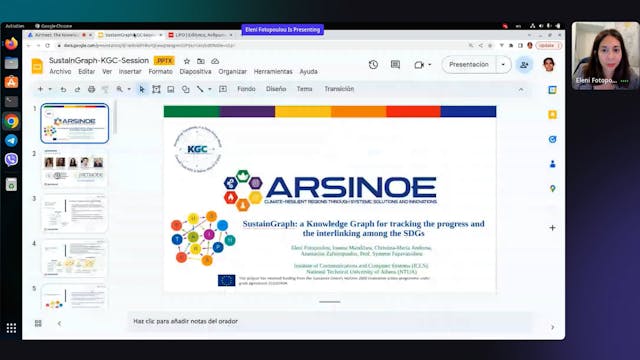In Defense of Inconsistency, On Managing Truth in a Knowledge Graph
May 10 | KGC 2023
•
27m
It is well known that work in AI fails to implement diverse viewpoints and generalize requirements adequately. Results are often unreliable, inaccurate and biased. The scope of this issue has only been magnified as LLMs have gained prominence and we need to be concerned about the trajectory of how AI systems are influencing our perceptions of truth and with the social conditioning and technical processes by which AI systems instantiate truth. As systems designed for integration of heterogeneous sources into a homogeneous system, this challenge is particularly pressing for knowledge graphs. Knowledge graphs are often presented as an AI solution for increasing the understandability of complex data landscapes, facilitating reliable pipelines for sharing or integrating data in order to gain new insights. However, the commonly deployed architecture is characterized by creating a single standardized ontology with the lens of establishing a single source of truth for all data needs. Using a number of real examples, we demonstrate that this imposes a counterproductive inflexibility rendering our graphs less useful. Contrary to this approach, and based on science from fields such as cognitive science, sociology and linguistics, we argue for a perspective that allows for more flexibility in the integration of datasets. Our knowledge graph design needs to allow for a greater plurality of vocabularies and ontologies and even inconsistency while still allowing for the data integration objectives originally conceived for knowledge graphs. We present an architecture utilizing extant RDF/OWL standards and an approach that supports a more pluralistic, efficient and effective knowledge graph development.
Up Next in May 10 | KGC 2023
-
Opening Keynote Sessions
The Artificial Intelligence landscape is changing at an unprecedented pace. Powerful AI tools and services have amazed both the general public as well as many seasoned AI researchers. Like all technologies, however, challenges remain. Many remaining challenges for large language models and gen...
-
SustainGraph: a Knowledge Graph for t...
In this talk, we present the SustainGraph, as a Knowledge Graph that is developed within the framework of the ARSINOE Horizon Europe project to track information related to the progress towards the achievement of targets defined in the United Nations Sustainable Development Goals (SDGs) at nation...
-
The error is the message: Extracting ...
Turning dross into gold. Knowledge graphs, with their capacity for surfacing vast hidden networks, can help detect looted art from the ownership history - or provenance - of artworks. The cultural heritage sector and art industry have explored named entity recognition with an event-based approach...



